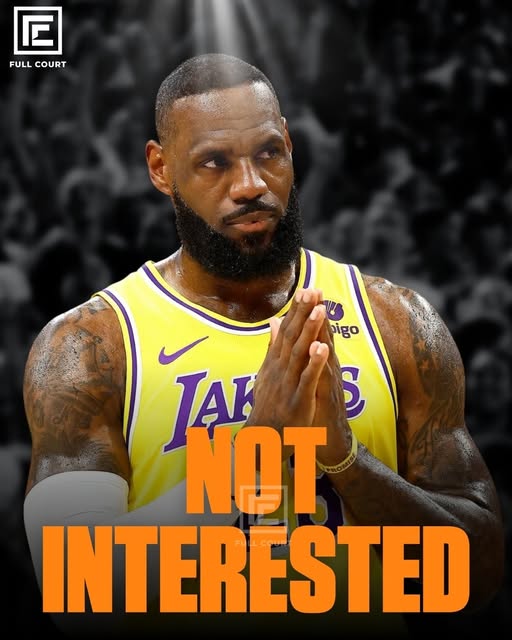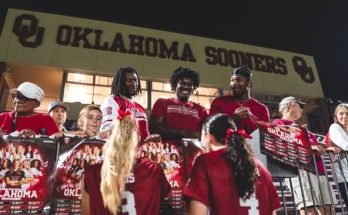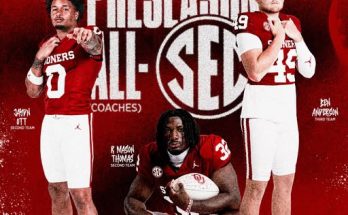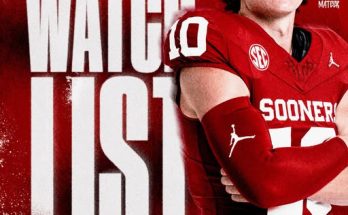The basketball world was sent into a frenzy recently with reports suggesting that the Cleveland Cavaliers, the team famously associated with LeBron James, are not as eager to welcome the NBA icon back as many fans had hoped. This revelation has sent shockwaves throughout the league and raised many questions about the future direction of the Cavaliers and the legacy of LeBron James himself.
LeBron James’ relationship with the Cleveland Cavaliers is storied and complex. He was drafted first overall by the Cavaliers in 2003 and quickly rose to superstardom, becoming the face of the franchise and the city of Cleveland. His early years with the Cavs were marked by spectacular individual performances and a growing reputation as one of the best players in the league. However, the pinnacle of his tenure was arguably his second stint with the team from 2014 to 2018, during which he led Cleveland to an NBA championship in 2016, delivering the city its first major sports title in over 50 years.
Given that rich history, any rumors of LeBron and the Cavaliers not seeing eye to eye naturally attract attention. The recent report that the Cavaliers are not particularly interested in a reunion with LeBron highlights how much the landscape around both the player and the team has changed since those glory days. But what exactly is behind this surprising development, and what does it mean for both parties moving forward?
One of the key factors that appears to influence the Cavaliers’ stance is their current team-building strategy. Cleveland is in the midst of a rebuild after several seasons of struggle following LeBron’s second departure in 2018 when he signed with the Los Angeles Lakers. The Cavaliers’ front office has made it clear that their focus is on developing a young, dynamic core of players who can grow together and eventually contend for a title without relying on a superstar in the twilight of his career. The team’s young talent, including promising draft picks and rising stars, is seen as the foundation of this new era, and management seems reluctant to disrupt that trajectory by bringing in a veteran, especially one whose best years are behind him.
In addition to the rebuild philosophy, there are also financial considerations at play. LeBron James, even in the latter stages of his career, commands a high salary that could significantly limit the Cavaliers’ flexibility under the NBA’s salary cap. The team would likely have to make difficult choices about which young players or assets to move in order to clear space for LeBron’s contract. For a franchise committed to youth and future growth, such sacrifices might not align with their vision. Moreover, there is a growing emphasis in the NBA on managing cap space smartly to allow for sustained competitiveness rather than short-term boosts that might jeopardize long-term stability.
The Cavs’ hesitancy also stems from a strategic basketball perspective. LeBron’s style of play demands a very particular supporting cast and coaching approach. To maximize his effectiveness, the Cavaliers would need to build around him with capable shooters, defenders, and a coach who can tailor the system accordingly. This might mean abandoning the developmental process for current young players who do not fit that mold. With the coaching staff and front office seemingly committed to a more modern, team-oriented system emphasizing pace, space, and shooting, the fit might not be ideal for a veteran superstar used to being the focal point on offense and defense.
Beyond basketball and finances, the dynamics of LeBron’s relationship with the Cavaliers organization and the city itself might have evolved in ways that complicate a reunion. Although he remains beloved by many fans and has a significant place in Cleveland’s sports history, his previous departure in 2010 to Miami left a bitter taste for some. The famous “The Decision” television special where he announced his move was widely criticized and affected how some Cavaliers fans perceive him. While his return in 2014 helped mend some fences, the years apart and the changing organizational culture may mean that the mutual enthusiasm necessary for a reunion just isn’t there.
LeBron himself has made no secret that he wants to finish his career on his own terms. Currently with the Los Angeles Lakers, he has expressed a desire to compete at the highest level for as long as possible, aiming for more championships and records. The Lakers provide him with a glamorous platform in Los Angeles, where he has business ventures, entertainment connections, and a lifestyle that suits his off-court ambitions. This factor could make a return to Cleveland less appealing from his perspective as well.
There is also the question of whether the Cavaliers are concerned about what a LeBron return might signal to the rest of the league and to their own fans. On one hand, bringing back an all-time great like LeBron could generate immediate excitement, increase ticket sales, and boost merchandise revenue. On the other hand, it might be perceived as a step backward—a sign that the Cavaliers are unwilling or unable to build a championship contender without relying on a past superstar. For a franchise trying to carve out a new identity, this might be a risk they are not willing to take.
Critics of the Cavaliers’ apparent disinterest argue that the chance to reunite with LeBron James is too valuable to pass up. They contend that his unmatched leadership, basketball IQ, and ability to elevate teammates could accelerate the growth of the young core and make the team competitive far sooner. Additionally, LeBron’s presence alone attracts top-tier free agents and coaches who want to chase a title, something that could benefit Cleveland’s rebuild dramatically. From this perspective, the Cavaliers might be underestimating the impact LeBron could still have on and off the court.
Yet, the Cavaliers’ cautious stance may be grounded in a realistic assessment of the challenges involved. LeBron’s body has taken a toll over the years, and while he remains an extraordinary athlete, the physical demands of the NBA grind are relentless. The team might worry about the sustainability of depending on a player nearing 40, especially when it could limit opportunities for younger players to develop by occupying a prime roster spot and taking a large share of the minutes.
The broader NBA landscape also plays a role in this decision. The league is becoming younger and more athletic, with many teams built around fast-paced offenses, high-volume three-point shooting, and versatile defenders. While LeBron has adapted well throughout his career, the question remains whether the Cavaliers’ current roster construction and style of play are compatible with his presence or if it would require an overhaul that is currently unfeasible.
Furthermore, there is the element of competition. The Eastern Conference has seen a surge in talent and depth in recent years, with teams like the Milwaukee Bucks, Boston Celtics, and Miami Heat rising as contenders. The Cavaliers may feel that even with LeBron, it would be difficult to leapfrog these established squads without a fully committed rebuild or significant additions. This pragmatic approach might be why the franchise is prioritizing a long-term vision over a quick fix.
For LeBron, the situation is equally complex. His legacy is already cemented as one of the greatest players in basketball history. Returning to Cleveland might come with immense pressure to replicate the success of his previous tenure, which could be challenging given the current state of the team. There is also the personal side—LeBron has made Los Angeles home, with business, family, and personal interests deeply rooted there. A return to Cleveland would not just be a basketball decision but a life-altering choice.
Despite the report that the Cavaliers are not that interested in bringing LeBron back, it does not completely close the door on the possibility. The NBA is full of surprises, and relationships between players and franchises can evolve rapidly. If the right circumstances emerge—a trade opportunity, a shift in team strategy, or LeBron’s personal priorities changing—a reunion could still happen. However, for now, it appears that the Cavaliers are more focused on building their future without leaning heavily on the past.
In the end, this development is a testament to how much the NBA and its teams evolve. The story of LeBron James and the Cleveland Cavaliers is one of transformation, both on a personal level for the player and on an organizational level for the franchise. What started as a fairy tale of a hometown hero has become a more nuanced narrative about growth, change, and the realities of professional sports.
The Cavaliers’ decision to not heavily pursue LeBron James does not diminish his legendary status or the indelible mark he left on the franchise. Instead, it underscores the challenges teams face in balancing nostalgia with pragmatism and the need to forge a sustainable path forward. Fans of both the Cavs and LeBron James will be watching closely to see how this chapter unfolds, but for now, it seems the Cavaliers are charting a new course—one that may not include the return of their most famous son.



